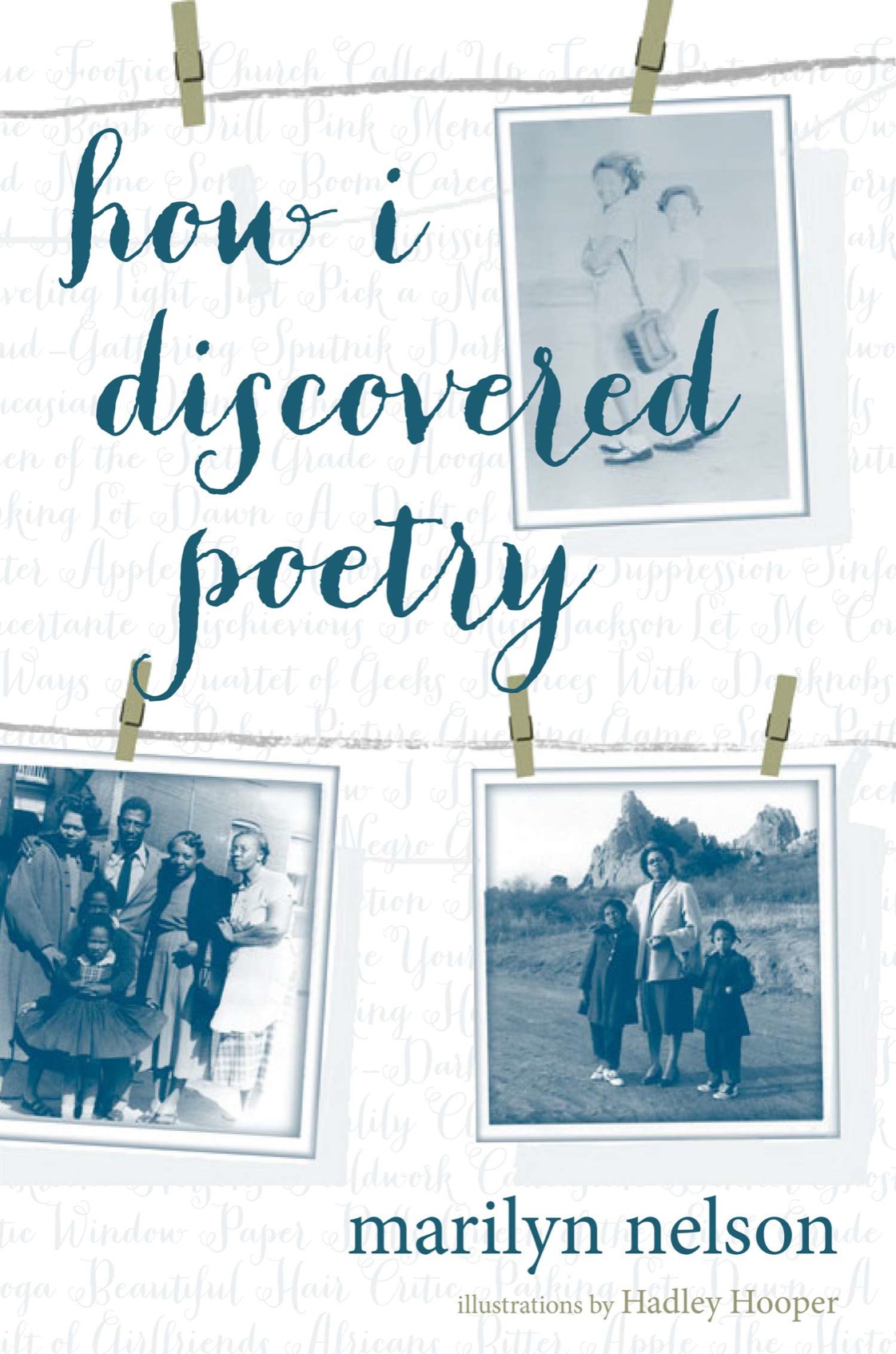
How I Discovered Poetry
فرمت کتاب
ebook
تاریخ انتشار
2014
Reading Level
4
ATOS
5.2
Interest Level
4-8(MG)
نویسنده
Hadley Hooperشابک
9781101635391
کتاب های مرتبط
- اطلاعات
- نقد و بررسی
- دیدگاه کاربران
نقد و بررسی

Starred review from November 11, 2013
Nelson crafts a stirring autobiography in verse, focusing on her childhood in the 1950s, when her family frequently moved between military bases. Complemented by muted screen print–like illustrations, Nelson’s 50 poems are composed of raw reflections on formative events, including her development as a reader and writer. The political and social climate of the 1950s infuses the poems through references to bomb drills at school (“Everybody’s motto is Be Prepared,/ so we practice tragic catastrophes”), the Red Scare, the death of Emmett Till, and the stirrings of the civil rights movement. Nelson’s introduction to poetry reads like falling in love: “It was like soul-kissing, the way the words/ filled my mouth as Mrs. Purdy read from her desk./ All the other kids zoned an hour ahead to 3:15,/ but Mrs. Purdy and I wandered lonely as clouds borne/ by a breeze off Mount Parnassus.” An intimate perspective on a tumultuous era and an homage to the power of language. Ages 12–up. Illustrator’s agent: Marlena Agency.

December 1, 2013
Multiaward-winning poet Nelson (A Wreath for Emmett Till, illustrated by Philippe Lardy, 2005, etc.) tells how growing up as a daughter of one of the first African-American career officers in the Air Force influenced her artistic development. In its 50 unrhymed sonnets, the memoir reflects on Nelson at ages 4 through 14, as she and her family followed her father during the pivotal 1950s. Moving to 11 locations in 10 years, from Ohio to Texas, Maine to California, Nelson, her sister and parents crossed the country, repeatedly giving the speaker in these first-person poems the full-throttle experience of being not only the new kid on the block, but often the lone African-American in her class. Nelson grippingly conveys the depth of her resulting isolation, noting the strangeness of how in Kittery Point, Maine, "we're the First Negroes of everything." There's also the bafflement of having meaning attached to simply being herself--for example, while standing in line to get a polio vaccine in 1955 Kansas, "Mrs. Liebel said we were Making History, / but all I did was sqwunch up my eyes and wince. / Making History takes more than standing in line / believing little white lies about pain." With sophisticated wordplay and poignantly spare description, this lyric bildungsroman creates as effective a portrait of race relations in 20th-century America as of formative moments in Nelson's youth. (author's note) (Memoir/poetry. 10 & up)
COPYRIGHT(2013) Kirkus Reviews, ALL RIGHTS RESERVED.

February 1, 2014
Gr 6 Up-Nelson traces her childhood and developing awareness of civil rights issues in this eloquent collection of 50 unrhymed sonnets. In 1950, her father, one of the first African American Air Force officers, is recalled to duty, launching the family on the first of several cross-country moves. Her father takes a leave from law school, her mother takes leave from teaching, and: "Our leaves become feathers. With wings we wave good-bye to our cousins." Their travels take them from Cleveland to Texas, Colorado, Kansas, California, Maine, and Oklahoma; the leave-takings are always painful. In "Traveling Light," she muses over the family dogs (Pudgy, Lady, and General) left behind. "Daddy explains. We've been transferred again. We stand numb as he gives away our toys." Close family ties help them confront the small-mindedness and racism encountered along the way. In "Bad Name," she observes: "TV is black-and-white, but people aren't. There's a bad name mean people might call you, but words aren't sticks and stones." Books, television shows, and friends provide a respite from the menace of the Cold War. Through snatches of grown-up conversation, she learns of Rosa Parks, Emmett Till, and Little Rock. She overcomes school yard bullies, wonders about boys, and is humiliated by a teacher who makes her read aloud a racist poem: "She smiled harder and harder until I stood and opened my mouth to banjo-playing darkies...." This hurtful episode only underscores the awesome power of words and leads Nelson to wonder whether "there's a poet behind my face." Altogether, Nelson's poems offer a candid portrait of her formative years as well as a triumphant message, which will resonate with readers, young and old, who cherish and recognize the power of words and stories.-Marilyn Taniguchi, Beverly Hills Public Library, CA
Copyright 2014 School Library Journal, LLC Used with permission.

March 15, 2014
Grades 7-12 In this fictionalized memoir in verse, renowned poet Nelson lyrically recounts her passage from ages 4 to 14, from numerous military base homes; through friends, schools, and dogs; and from developmental stages of initiative through industry to identity. Chronicling the decade of 1950s America, a young self-aware speaker connects national events to daily life experiences. In the author's note of her self-ascribed portrait of an artist as a young American Negro girl, Nelson disclaims that the I in the title is she. Rather, her autobiographically inspired collection of 50 nonrhyming sonnets is enhanced by research and imagination. The title poem comes near the end and is breathtaking in the perverse cruelty the young speaker experiences from an educator. Hooper's line-and-shade illustrations, along with Nelson's family photos, set a quiet and respectful tone and offer readers the feeling of taking an unsolicited peek behind a heavy curtain. For fans of Nelson's impressive body of children's and adult poetry, including the brilliant A Wreath for Emmett Till (2005), this insight into her modulated memories gratifies that heartfelt belief that here writes a woman of great substance.(Reprinted with permission of Booklist, copyright 2014, American Library Association.)

























دیدگاه کاربران